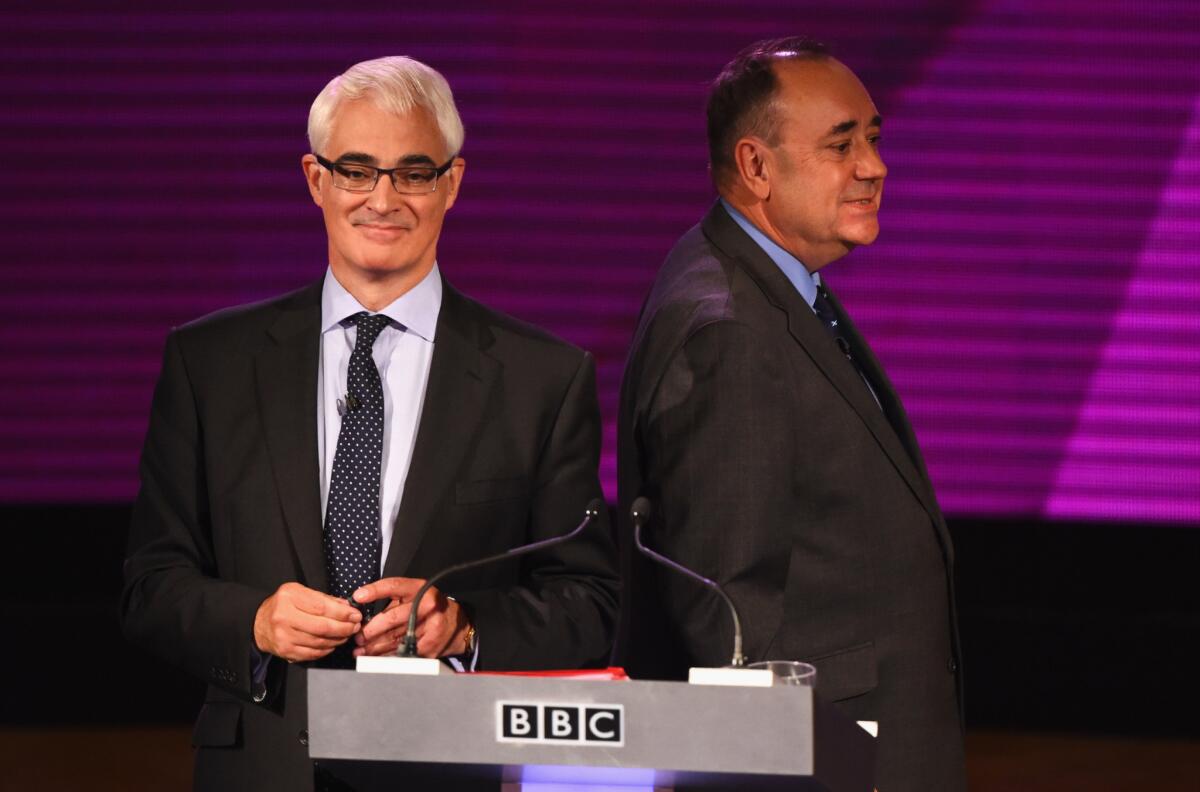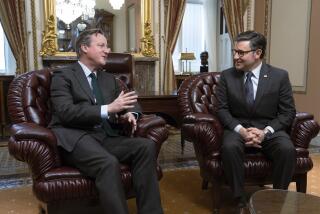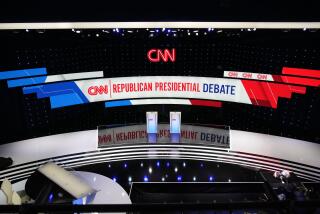Money issues dominate final televised debate on Scottish independence

The campaigns for and against Scottish independence held a final televised debate Monday night in Glasgow that polls suggested was won by Scotland’s First Minister Alex Salmond. It was a victory he sorely needed: His “Yes” campaign has consistently trailed in polls leading up to the Sept. 18 referendum on whether to secede from Great Britain.
A poll conducted for Britain’s Guardian newspaper showed 71% of respondents saw Salmond as the victor in his debate against Alistair Darling, a former British finance minister who heads the campaign against secession.
Darling pressed his opponent hard over questions such as which currency an independent Scotland will use and how it will manage dwindling tax revenue from oil and gas installations on the North Sea. The British government has said an independent Scotland would not be permitted to use the British pound, though Salmond argued the issue remains up for negotiation.
Darling, who was widely seen as having won a previous debate this month, has frequently accused the Scottish leader of not having a “Plan B.” There has been speculation the newly formed country would be forced to adopt the euro, whose reputation has suffered in light of the debt crisis of the last several years.
Salmond attempted to allay those fears Monday night with several alternatives.
“We could have a Scottish currency. We could have a flexible currency like Sweden or Norway has. We could have a fixed-rate Scottish pound attached to the pound sterling. That’s what Denmark does with the euro and Hong Kong does with the dollar,” Salmon said. And he added: “No one can stop us using the pound sterling, which is an internationally tradeable currency.”
Darling disparagingly likened such an arrangement to a “Panama model,” a country that uses the U.S. dollar but sacrifices having full control over fiscal and monetary policy issues such as borrowing and the setting of interest rates.
If the “Yes” campaign is successful, an independent Scotland could have some leverage in any negotiations over currency. There have been calls in recent days for the Scottish government to refuse to pay its share of Britain’s sizable public debt.
Salmond appeared to adopt such a strategy in the 90-minute debate. “If you deny us the financial assets, then the U.K. will get stuck with all the liabilities,” he warned.
But it appeared to be on other matters that Salmond was trying to win over the last remaining undecided voters. In a change of messaging in the months-long campaign, he argued that independence is the only way to protect Scotland and its publicly funded healthcare system from budget cuts made in London.
He often stepped out from behind his lectern and approached the debate’s studio audience. “This is our time,” he said. “It’s our moment. Let’s do it now.”
Werth is a special correspondent.
More to Read
Start your day right
Sign up for Essential California for news, features and recommendations from the L.A. Times and beyond in your inbox six days a week.
You may occasionally receive promotional content from the Los Angeles Times.






